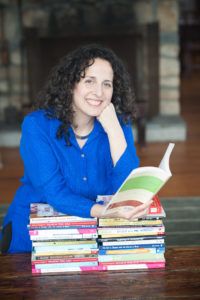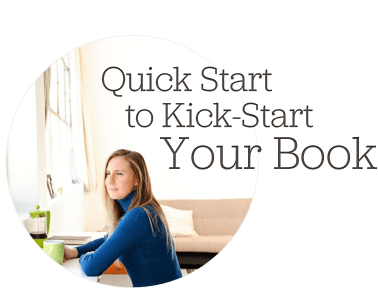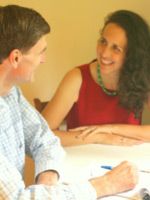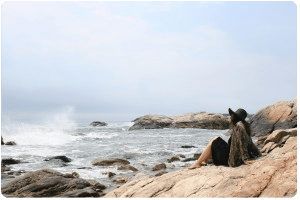
As we approach the start of the Bring Your Book to Life® Program, I find myself leading many book concept consultations in order to help people pin down a book idea and get started writing. Are you wondering how to clarify your book idea?
You may wonder:
- “How do I get clear about what my book is—and what it’s not?”
- “How do I get started on my book?”
- “What is my book idea at its essence?”
- “What do I need to know before I start writing?”
- “What happens in a book concept consultation?”
Good questions!
Book concept consultations vary depending on the needs of the emerging author. However, there are some foundational questions we usually cover, as well as some themes that often emerge.
In this post, I’d like to share both the structure and focus of a typical book concept consultation as well as provide some common insights and inspirational takeaways that may help you on your book writing journey and, in particular, to help to choose a book idea and pin down content, details and structure.
Preparing for a Book Concept Consultation
When you register for a private consultation or my Bring Your Book to Life® Program, you’ll immediately receive a questionnaire to help us both prepare for our call together. In the questionnaire, you’ll answer a variety of questions about your book ideas, your long term vision and goals, and your hopes for your readers. People often share that as soon as they began answering the questions, the haze lifted and their path became clearer.
 In addition to the questionnaire, for those not in my premiere programs, many writers decide to purchase Quick Start to Kick Start Your Book, a $97 -$116 workbook/course that helps you with the early stages of book writing, to gain clarity about your foundational book concept and structure before you begin writing. Quick Start addresses some of the information in the questionnaire at a deeper level and with exercises.
In addition to the questionnaire, for those not in my premiere programs, many writers decide to purchase Quick Start to Kick Start Your Book, a $97 -$116 workbook/course that helps you with the early stages of book writing, to gain clarity about your foundational book concept and structure before you begin writing. Quick Start addresses some of the information in the questionnaire at a deeper level and with exercises.
Once you work through Quick Start and answer the questions in the questionnaire, you’re ready for your book concept consultation.
What Happens in a Book Concept Consultation?
A book concept consultation often begins with exploring your vision for the book (what it will do for you, your readers, your business and/or work in the world, and the broader community and world). Sometimes you gain additional clarity, or realize a new aspect of the vision you hadn’t recognized before.

We explore who your target audience—or core readers—are for this book. We discuss which audience of several may be most aligned with your vision. Be prepared for possible surprises from your inner muse (more about your muse shortly).
If you have multiple book ideas, we discuss which idea might match your goals best, which may be most marketable, which might be easiest to start with, and other important considerations. We clarify the content, features, tone of the book, and also what maybe doesn’t fit in this particular book—what to leave out for another book or for blog posts and courses, for instance.
We also address the underlying structure of your book: What might work best for your readers to learn and integrate the material? What might be most appealing and marketable to your readers? What may make it easiest to write, especially if this is your first book of many.
Other important issues that come up in a consultation include self-doubt and related concerns.
- “Do I have what it takes to write this book?”
- “Will anyone likely read or buy it?”
- “Is this book truly needed?”
- “Am I delusional?” [Hint: you’re probably not delusional.]
And we address any decisions you’ve been grappling with:
- “Do I tell other people I’m writing this book or keep it a secret for a while?”
- “Do I work with a co-author or on my own?”
- “Should I write a memoir or make it more of a self-help book?”
Your questions will likely be very specific to you and your book. They come up in the questionnaire and also as we discuss your book. I take them down so we can explore once in conversation and once in a guided visualization I call “Meet Your Muse.” Did I mention I’ll share more about your muse later?
Self-publish or Traditionally Publish?
Many people also wonder whether to self-publish or traditionally publish. It’s helpful to get clarity on your publishing decision early on, since the two options diverge after you clarify your book concept, structure or outline and one or two sample chapters. After that you either write the book (if self publishing) or the book proposal (if traditionally publishing).
We take several factors into account to get clarity including your vision and goals, the marketability of your book, how competitive the market is for this type of book, the current size of your community or platform, your willingness to do what it takes to grow said platform (and whether that’s something you are going to enjoy) and more.
Insights and Takeaways
Insights, of course, vary from call to call but here are a few common insights I’ve observed over time:
- “I wouldn’t have the desire to write this book if I didn’t have it in me to write it.”
- “I’m more creative than I realized.”
- “This could actually be fun!”
- “This is going to be easier than I thought. I have access to something within me I didn’t even realize was there.”
- “I have more than one book here!”
Time to Meet Your Muse

Once we have explored the issues above, we often embark upon a journey of sorts—a guided visualization I call “Meet Your Muse” in which we consult your inner muse for guidance on all of the above questions.
“What’s a muse?” I think of your muse as your inner creative source—an aspect of you that has access to wisdom beyond your everyday mind, that’s infinitely creative, that offers a deeper sense of knowing. Some people experience the muse as being within them and others feel like it comes from outside of them. Doesn’t matter. It’s all the same. We all have different ways of experiencing the muse.
Your muse may show up in symbolic form—a wise being, a religious figure, a totem animal, a thing. Or you may experience your muse as more of a felt sense of connecting with something. You may hear an inner voice (and it may sound just like your regular voice-inside-your-head). When we’re doing the exercise, you provide a few hints when you’re in your head (“I think…”) or your heart/muse (“I feel, I see, I hear…”).
Sometimes your muse confirms our initial ideas, and other times your muse adds additional information or inspiration. At times, your muse—your inner guidance—may tell us the opposite of what we thought. And I’ve learned to trust that.
The “Meet Your Muse” part of our call is often especially powerful. It puts you in touch with a resource that will help you throughout your entire book-writing and publishing journey—your creative source.
Curious about the muse? Here’s how one client found the creative space to write her book, after her writing practice fell apart, by listening to her muse.
Feel free to share how you access your inner guidance and ask any questions you have about how to choose and develop your book idea.


